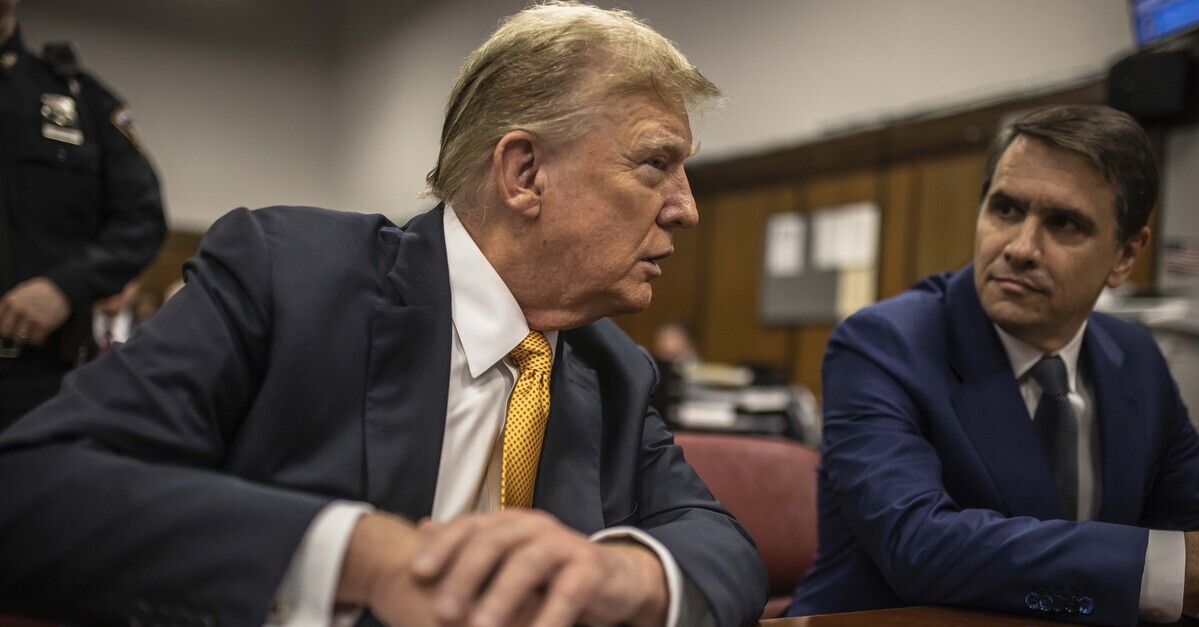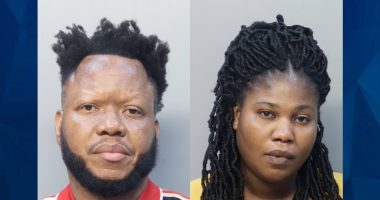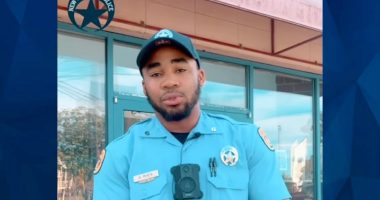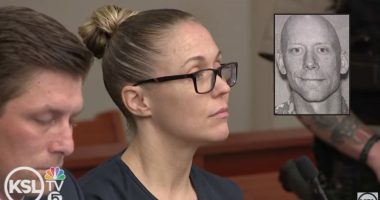
Former President Donald Trump sits in a courtroom next to his lawyer Todd Blanche before the start of the day’s proceedings in the Manhattan Criminal court, Tuesday, May 21, 2024, in New York. (Dave Sanders/The New York Times via AP, Pool)
On Tuesday, in the mid-to-late morning, after their second and final witness left the stand, defense lawyers rested their case in the historic first criminal trial for a former president of the United States.
“Your honor, the defense rests,” lead defense attorney Todd Blanche told New York Supreme Court Justice Juan Merchan.
Donald Trump, 77, did not testify in his own defense — a common choice for criminal defendants and one jurors will not be allowed to consider whatsoever as they eventually begin their deliberations.
Outside the confines of Courtroom 1530 at 100 Centre Street, in the judicial complex adjacent to New York City’s first-built but third-largest Chinatown, the 45th president’s in-court, Fifth Amendment guaranteed, silence has, of course, been — and will be — discussed at length.
On Monday, Trump attorney Alina Habba, a litigator who has recently appears to have modified her role into something more like a legal adviser and spokesperson, appeared on Fox News to venture a rationale for her employer’s decision not to testify in the hush-money trial.
“Well, he’s got to listen to his attorneys,” Habba said. “It’s not as much what he wants to do. We know he wants to testify. He is willing, he is able … nothing to hide at all. He’s absolutely ready to tell the truth. It would be pretty quick … in terms of the questions asked … because he had no part in this.”
Manhattan District Attorney Alvin Bragg has fashioned and delivered a case essentially arguing the exact opposite: that the defendant was intimately involved in the effort to keep Stormy Daniels, 45, from going to the press about her alleged affair with Trump.
Over the course of one month, 20 witnesses, and over 200 pieces of documentary evidence, prosecutors hoped to show that Michael Cohen, 57, only paid Daniels’ attorney $130,000 because a prior arrangement fell through and the Trump 2016 campaign was struggling to control the fallout before it fell. That prior arrangement was allegedly agreed upon during an August 2015 Trump Tower meeting involving Trump, Cohen, and David Pecker, 72, then-CEO of the National Enquirer‘s parent company, American Media Inc.
After some success with the so-called catch-and-kill process, the National Enquirer’s top brass refused to pony up the cash and bottle up any more alleged liaisons for the Trump campaign.
Cohen, in making the Daniels payment, using an admittedly fraudulently obtained bank account for Essential Consultants, LLC, was only following Trump’s orders, the prosecution argued.
The defense, oppositely, has sought to paint Cohen as an obsequious liar who was, at the time, motivated by an obsessive desire to suck up to Trump in hopes of never-ending recognition, ego, and personal gain. Now, on the other hand, the defense wants jurors to see Cohen as not truly chastened, but only slightly changed; an obsequious liar who is still motivated by fame and fortune but, with the shift in winds, willing to suck up to the whims of the liberal anti-Trump content industry.
But, the state’s case does not start and end with the Daniels’ payoff alone. In fact, the payoff — how and why it occurred — is somewhat illogically an after-the-fact piece of the puzzle here.
Bragg’s office says the underlying crime is when Trump signed off on — personally signing in some cases — 34 different invoices, ledger entries and checks that align with the 34 counts in the case. Fraudulent business paperwork is just a misdemeanor in the Empire State.
The shadowy nature of the initial Daniels payoff, however, means the alleged cover-up was part of a conspiracy to violate federal election law, according to the state. And that, the prosecution says, has transmogrified those small-bore white collar offenses into a felony case about the nature and preservation of democracy.
The defense has shrugged at the implication — saying there is nothing wrong with trying to influence an election, casting significant doubts on the credibility of the prosecution’s star witness, and insisting Cohen, then a lawyer, was simply paid $420,000 for legal services throughout 2017.
While impossible to know how jurors have viewed the extensive testimony and documentation, the prosecution has largely tied the defendant to the election corruption scheme by way of Cohen.
Perhaps similarly helpful, if not integral to such a link, might have been the testimony of former Trump Organization CFO Allen Weisselberg, 76, who directly worked with Cohen on his invoices and payments. And, Cohen testified, Trump directed him to deal with Weisselberg in order to be repaid for the Daniels plot. But the state — maybe averse to calling a second convicted felon; maybe genuinely uninterested in what he had to say — did not try the case with Weisselberg. Another Trump Organization accountant filled in some of those blanks for the jury, but stopped shy of implicating Trump himself in the scheme.
And there’s the rub: by not speaking on his own behalf, Trump has not done himself any harm and kept himself out of the line of fire that surely would have come via Bragg’s trial attorneys, Joshua Steinglass and Susan Hoffinger, who moved through most of their witnesses quite briskly. Blanche and defense attorney Emil Bove, the second chair for Trump, largely looked more than capable as well.
Habba, for her part, who previously served an in-court function during Trump’s financially disastrous civil fraud trial, has spoken about Trump’s willingness to speak for himself in the past.
“He will take that stand on Monday,” she told the media in December 2023. “He will open himself up to whatever they want because he’s not afraid. People who are afraid cower. Trump doesn’t cower.”
In the end, Trump did not testify in that trial either.
Have a tip we should know? [email protected]







